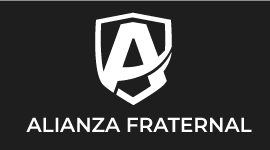The traditional Scottish Gaelic toast when raising a glass to say ‘cheers’ is Slàinte mhath which is pronounced slan-ge-var.
In Scotland, going to the pub or meeting up for a friendly drink is very much part of our culture. During winter, when the nights draw in fast and it’s dark by 3pm, a wee dram warms the spirit!
People say ‘Slange’ or ‘Slange Var’ when they clink their glasses; but ask the average Scot for the Gaelic spelling, and you may receive six or seven different answers.
We chose the phonetic spelling for our drink, Slange Var, to ensure non Gaelic speakers will be understood when ordering at the bar or from a menu. We don’t want our customers to feel embarrassed if they mispronounce slàinte mhath.
Let’s delve in to Scottish Gaelic to find out more about how we say ‘Cheers in Scotland’.
What does Slàinte mhath mean?
The direct translation of Slàinte mhath is “good health”, a traditional toast across the globe to wish someone a long and happy life.
When someone cheers you with slàinte mhath, you usually respond with slàinte, then it’s down the hatch!
To us, slàinte mhath is more than just a saying. We don’t just wish you good health, we provide it with a low-sugar, non-alcoholic drink made from fresh natural ingredients.
Scottish Gaelic
The Scottish Gaelic language originated in the west of Scotland having split from Irish Gaelic in the early 8th century, before spreading north and east.
It is very important to remember that Scottish and Irish Gaelic are different languages; don’t get them muddled up! Though written the same way, their names are actually spoken differently.
Scottish Gaelic is gah-lic, while the Irish is pronounced gay-lic.
Who speaks Gaelic in Scotland?
At its peak in the 1100s, Gaelic was the common tongue throughout the Highlands and Islands of Scotland, as well as the north east and central belt. Having been in decline for the last 900 years, the language has recently been supported by the Scottish government and is slowly growing.
If you travel to the Outer Hebrides (or Na h-Eileanan Siar – pronounced nah-hel-anin-sheer), you’ll find that more than half of the population speak Gaelic, so knowing how to toast properly will serve you in good stead.
In 2017 there were 3,965 students in Gaelic medium education in Scotland. The Glasgow Gaelic School is the largest Gaelic school in Scotland. This fantastic school is important to the rebirth of Scots Gaelic and they have a wonderful inclusive motto:
Two languages, Two cultures, Many opportunities.
Other Useful Gaelic Phrases?
Gaelic is a beautiful, musical language. Learning a little more could be very useful when going out in Scotland beyond being able to simply make a toast. Below are a few other words to help you out.
Welcome: Fàilte (fal-che)
Drink: Deoch (joch)
Thankyou: Tapadh leat (tapa-lai-ve)
Healthy: Fallain (fal-ing)
Honey: Mil (meel)
Lime: liomaideag (limmitshack)
Water: Uisage (ish-guh)
Using these words you should be able to get your hands on a glass of Slange Var no matter where you are in Scotland!
Let’s finish with one more useful Gaelic phrase, which means “goodbye for now” – mar sin leibh an drasta (mar-shun-leave-un-drow-stuh)!
Source: https://slangevar.com/blogs/news/cheers-in-scottish
